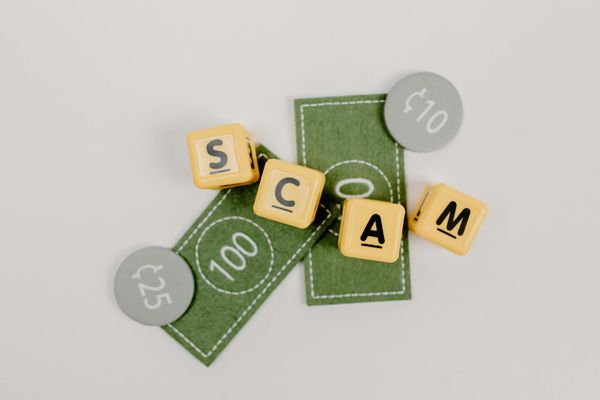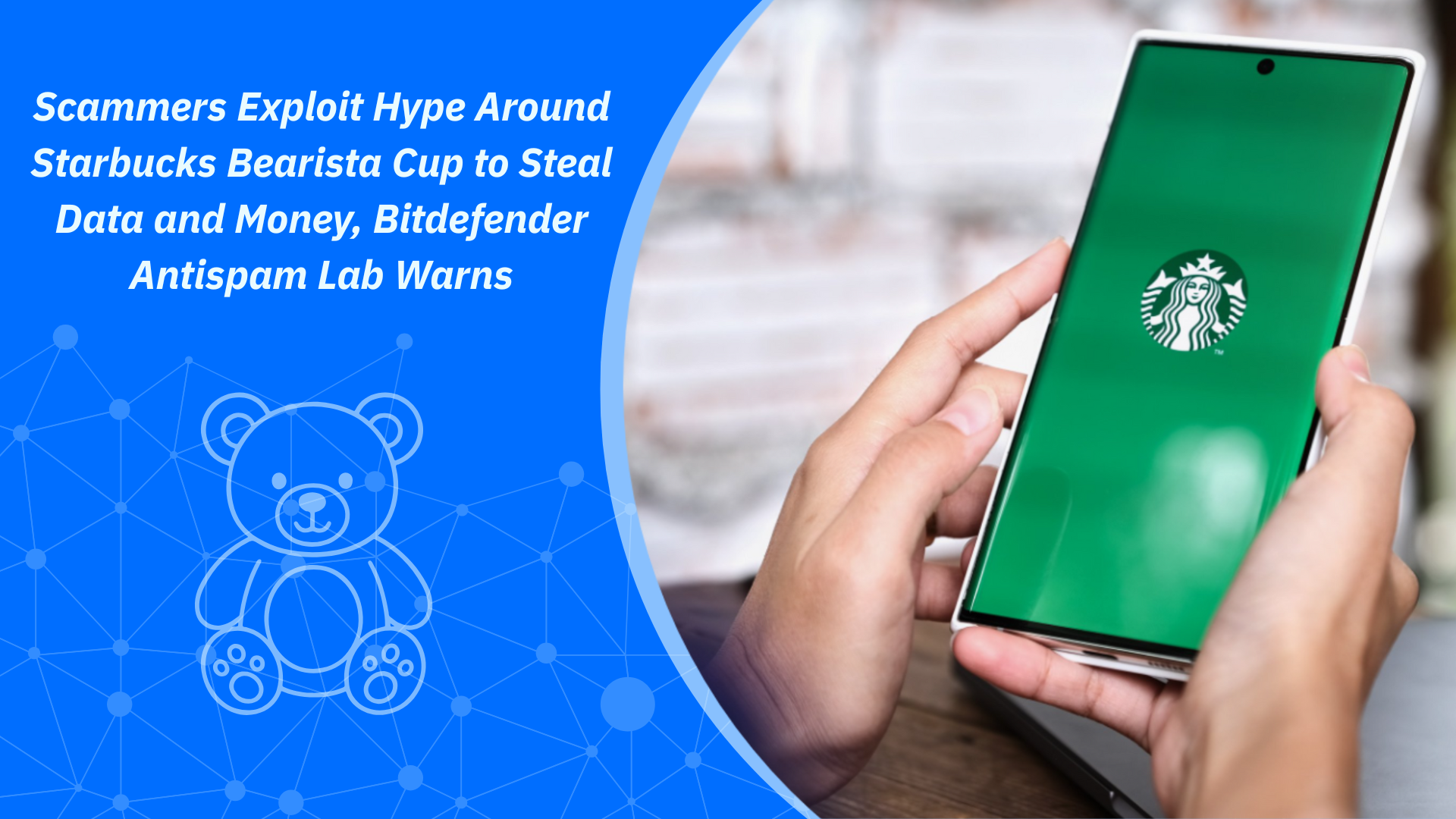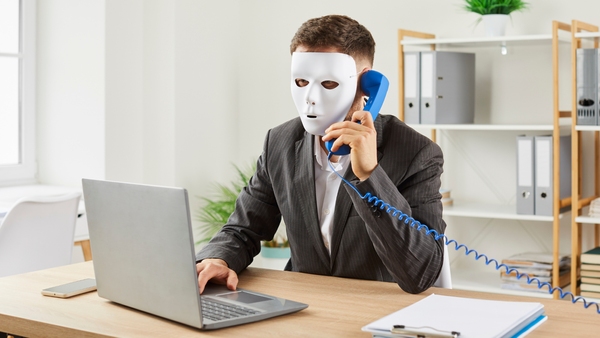Cashier Check Scams: How to Spot and Protect Against Them

In a cashier check scam, fraudsters send victims a fake check they need to deposit and are always ready with an excuse for why the recipient can’t keep all the money.
Cashier check scams prey on consumers’ trust and the perception of security associated with this form of payment. Unlike personal checks that rely on the account holder’s balance, a cashier check is issued and backed by a bank, guaranteeing the specified amount because the money has already been paid to the financial institution. This perceived security makes cashier checks extremely attractive auxiliaries for scammers.
In this article, we delve into the mechanics of cashier check scams, their variations, the warning signs, and how to protect against them.
Did you know?
- Consumers in the US lost more than $28 million to fake check scams in 2019 alone, according to the Federal Trade Commission (FTC). The median reported loss was $1,988.
- Scammers use social media platforms to target unwary consumers. A recent FTC alert sheds light on a new tactic for defrauding young adults. An “artist” contacts you out of the blue and asks for permission to paint one of your photos. If you agree, the scammer sends you a check. He then asks you to deposit it and send him some money for supplies, promising to reimburse you later.
How Cashier Check Scams Work
As previously mentioned, cashier check scams exploit the bank’s guaranteed payment. Here’s a quick breakdown of how these scams typically occur:
- Initial Contact: The scammer contacts you with an enticing offer. This could be through a job offer, an online purchase, or purported lottery winning.
- Receiving the Check: The scammer sends you a cashier check, usually for an amount significantly higher than expected. The fraudster provides a plausible reason for the overpayment and asks you to deposit the check.
- The Refund Request: Once you deposit it, the scammer asks you to return the excess amount, typically via wire transfer or another untraceable method.
- The Check Bounces: After a few days, the bank discovers that the cashier check is fake. You are now responsible for the entire amount of the check, as well as any money you sent to the scammer.
Common Cashier Check Scams
Mystery Shopper Scams: In this scam, fraudsters contact victims with mystery shopper proposals. Once hired and given a first “assignment,” victims are given a phony cashier check. In the next phase of the scam, targets are instructed to deposit the check in their bank account, withdraw the amount and send the scammer a portion of the funds, either via wire transfer, money transfer services or gift cards.
Related: How to spot and protect against mystery shopper scams
Online Marketplace Scams: This scam involves fraudsters overpaying for goods and services via online marketplaces and auctions. The scammer “accidentally” sends victims a fraudulent cashier check for more than the item’s price and asks the recipient to quickly wire the excess funds.
Related: Don't Get Scammed! Facebook Marketplace scams you should avoid
Lottery Scams: Victims are notified via email, text or phone that they’ve won a foreign lottery. To receive the full amount, they need to pay a service fee or taxes. The scammers will attempt to “help” victims out by sending them a cashier check to cover taxes. The check needs to be deposited and the victim must wire the money back to the scammer.
Related: Beware of scammers posing as lottery winners on social media
Employment Scams: Job seekers are sent cashier checks as a sign-on bonus or for equipment purchases, then asked to send back a portion for "processing fees." In some cases, victims receiving the check are asked to forward the money to a stranger and are in fact laundering money for criminals.
Related: The Wolf in Recruiter's Clothing: Identifying Fake Jobs on Indeed
Property Rental Scams: Scammers contact property owners and say they will pay the first and last month’s rent alongside any security deposit via cashier check, without ever seeing the property. Once the landlord deposits the check, the renter offers a legitimate reason for why they cannot move in, and ask for the rent to be paid back.
5 Warning Signs of Cashier Check Scams
- Unsolicited contact: You receive a cashier check out of the blue, especially from unknown or unsolicited sources.
- Overpayment: You are asked to send money back due to overpayment.
- Pressure Tactics: Scammers often create a sense of urgency, pushing victims to act quickly without proper verification.
- Suspicious Communication: Poor grammar, generic greetings, and email addresses that don’t match the sender's purported identity.
- Verification Delays: Banks may initially credit your account with the check amount, but it can take weeks for a fraudulent check to be discovered.
How to Protect Against Cashier Check Scams
- Verify the Check: Contact the issuing bank directly using contact information obtained independently (not from the check or the person who sent it) to verify the check’s legitimacy.
- Wait for Confirmation: Don’t spend or transfer any money until the check has been fully cleared by your bank.
- Be Skeptical of Overpayments: If someone sends you more money than expected and asks for a refund, it’s likely a scam.
- Use Secure Payment Methods: For large transactions, use secure, traceable payment methods and avoid cashier checks when possible.
- Report Suspicious Activity: If you suspect you’ve received a fraudulent cashier check, report it to your bank and local police.
- Use Scam Detection Tools: If you're suspicious about a certain phone call, email or SMS, ask Scamio. Scamio provides a fast and efficient way to find out if you’re being conned. Simply describe the situation to our clever chatbot and let it guide you to safety.
You can share with Scamio the exact thing you want to check: a screenshot, PDF, QR code or link. Scamio lets you know in seconds if it’s a scam. Use it anywhere via web browser, Facebook Messenger, or WhatsApp. Scamio is localized for use in the USA, France, Germany, Spain, Italy, Romania, Australia and the UK.
FAQ on Cashier Check Scams
How do cashier check scams work?
Cashier check scams typically involve a scammer sending a counterfeit check to the victim and asking them to deposit it and send back a portion of the funds. By the time the check is deemed fake, the victim has already sent real money, usually via an untraceable method such as a wire transfer.
What are the risks of accepting a cashier's check?
The main risk of accepting a cashier’s check is that the check could be counterfeit. If it is, you'll be responsible for the entire amount, including any money you may have sent to the scammer.
How do you know if someone is scamming you with a check?
Red flags include receiving a check from someone you don't know, especially if they overpay and ask for a refund. Other signs include pressure to act quickly or a request to return funds through wire transfers, gift cards, crypto or other untraceable methods.
tags
Author
Alina is a history buff passionate about cybersecurity and anything sci-fi, advocating Bitdefender technologies and solutions. She spends most of her time between her two feline friends and traveling.
View all postsRight now Top posts
Cybercriminals Use Fake Leonardo DiCaprio Film Torrent to Spread Agent Tesla Malware
December 11, 2025
Genshin Impact Scam Alert: The Most Common Tricks Used Against Players
December 05, 2025
How Kids Get Automatically Added Into WhatsApp Groups with Horrific Imagery Without Consent
November 24, 2025
Scammers Exploit Hype Around Starbucks Bearista Cup to Steal Data and Money, Bitdefender Antispam Lab Warns
November 18, 2025
FOLLOW US ON SOCIAL MEDIA
You might also like
Bookmarks







